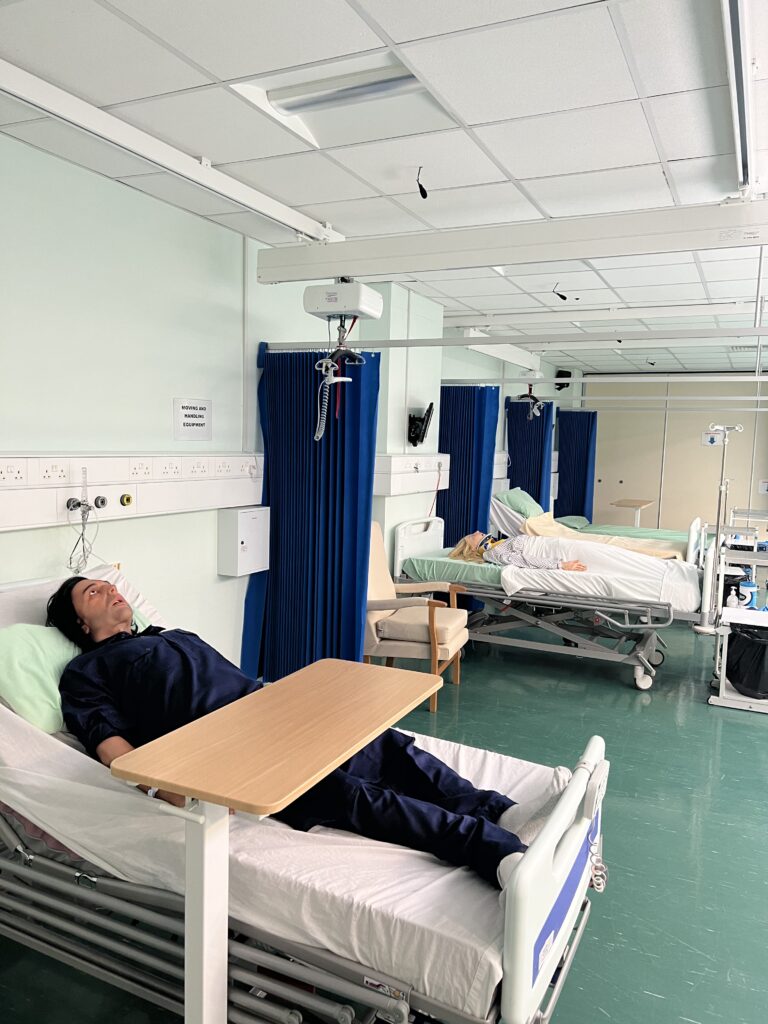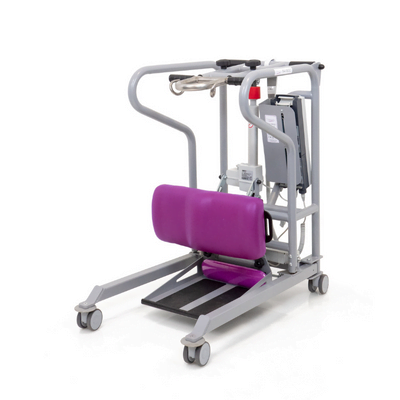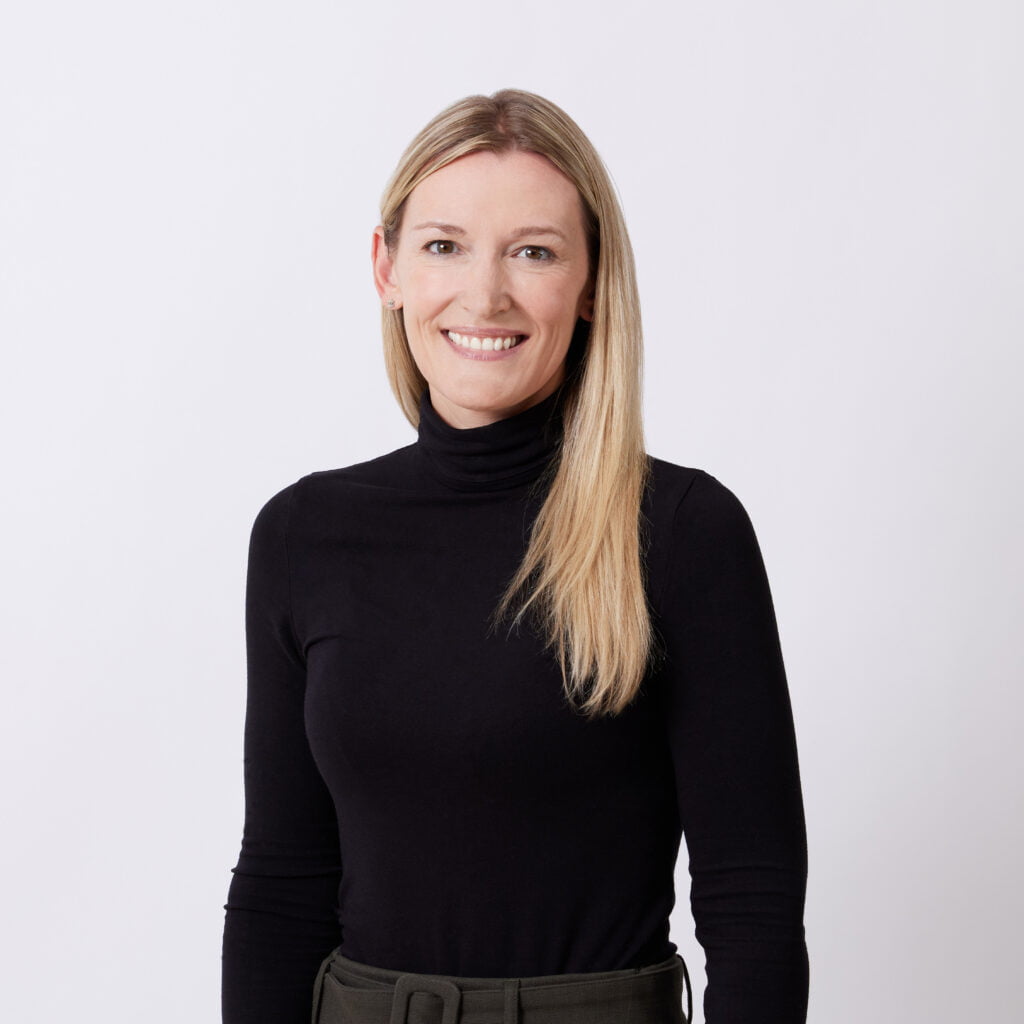In the realm of adaptive healthcare solutions, Prism Medical UK faced a unique challenge when a young boy struggled to find a suitable seating option due to his medical condition. After experiencing issues with other chairs, including injuries from a competitor’s product, a family contact sought assistance from Prism Medical UK to find a safer and more comfortable solution.
The contact recommended the Freeway Flow Shower Cradle after taking note of the boy’s positive experience with a shower trolley during respite care. The cradle’s tilt-in-space feature and height adjustability were identified as key factors that could address his specific needs.
Upon trying the Freeway Flow Shower Cradle, the boy’s demeanour noticeably changed within minutes. Previously restless and uncomfortable, he relaxed and conversed with his mother. The occupational therapist, upon arriving, was pleased to witness the positive impact of the adapted seating solution.
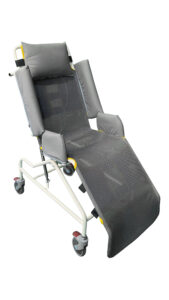
The Freeway Flow Shower Cradle provided him with a comfortable and secure option for bathing and opened the door to a more enjoyable and stress-free experience. However, due to the boy’s unique situation, the family contact recognised a potential for friction on the boy’s feet and legs.
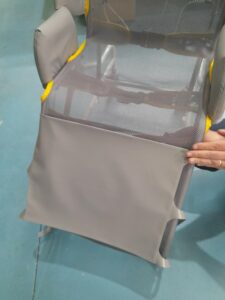
A pragmatic solution was proposed to address this concern—a custom extended vinyl calf strap for the lower leg section. Prism Medical UK’s manufacturing team, known for their expertise and commitment to client-specific solutions, swiftly implemented the modification. This thoughtful adjustment mitigated friction and enhanced the client’s comfort.
The adapted Freeway Flow Shower Cradle, now equipped with the extended vinyl calf strap, has become an integral part of the boy’s daily routine, allowing him to shower safely and comfortably. This case study showcases the practical and positive impact of tailored adaptations in healthcare, demonstrating how slight modifications can significantly improve the lives of individuals facing unique challenges.
This story serves as a reminder of the need for effective and personalised solutions, emphasising the importance of adaptive technology in enhancing the quality of life for individuals with diverse healthcare needs.



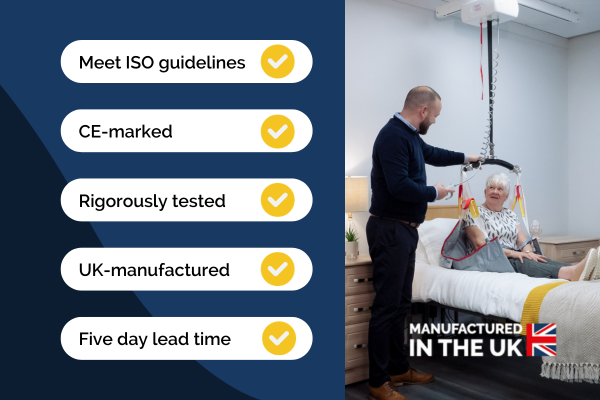
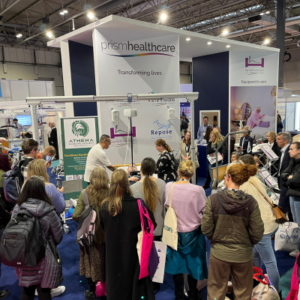
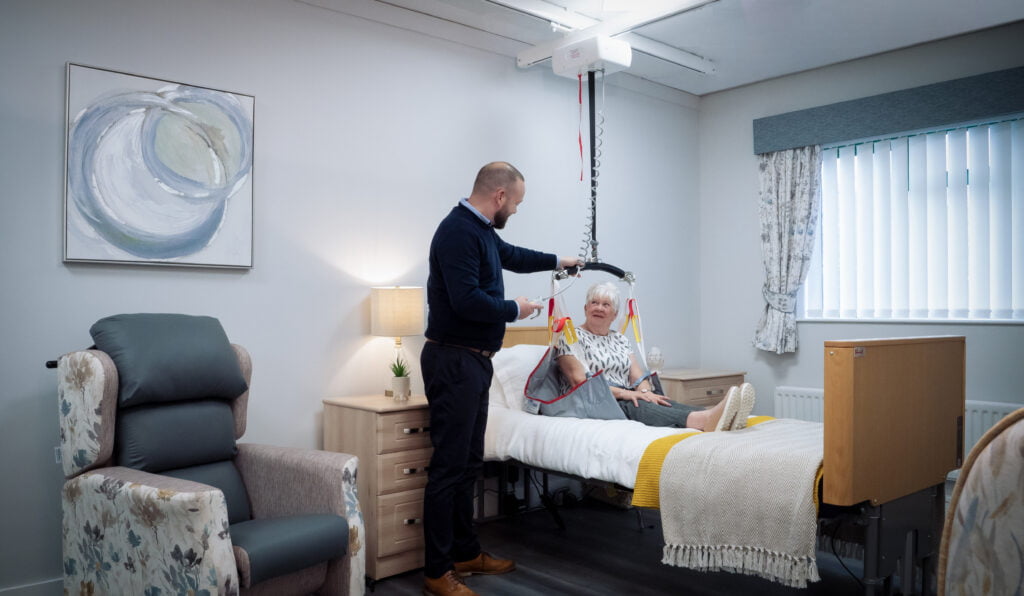
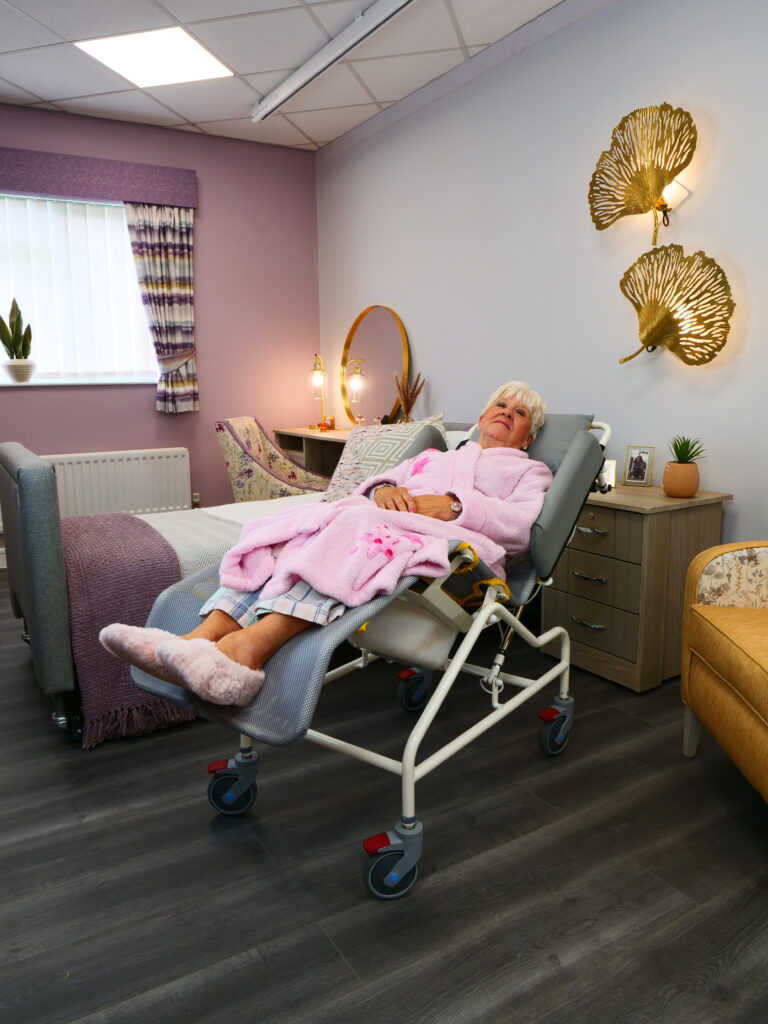
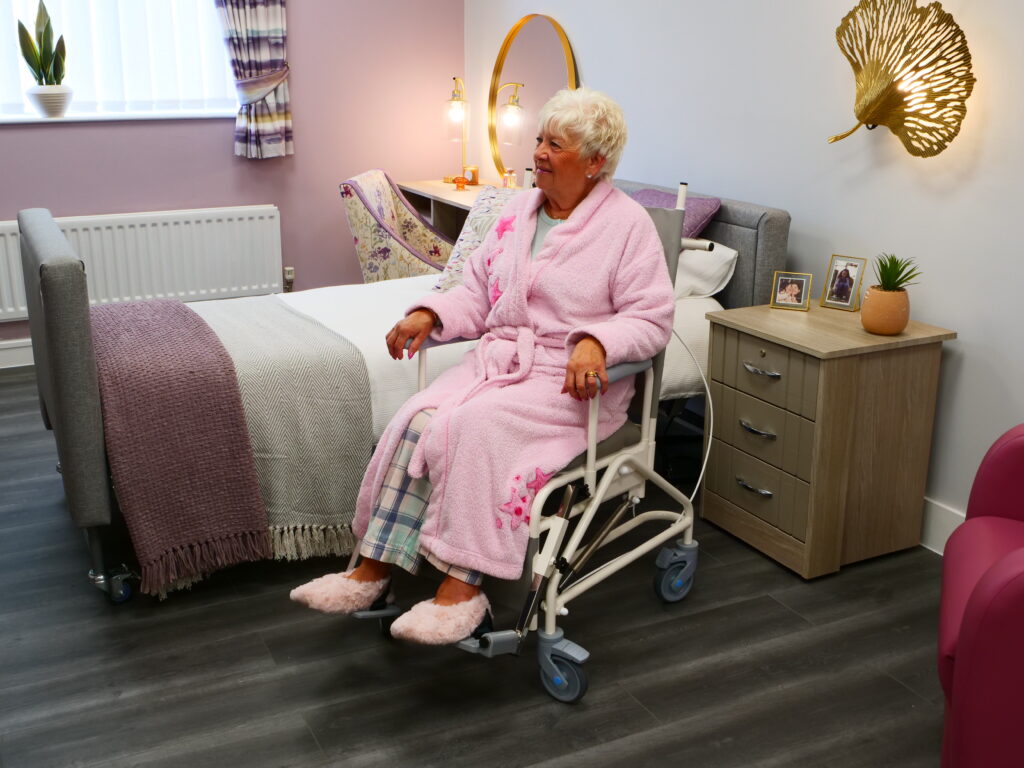
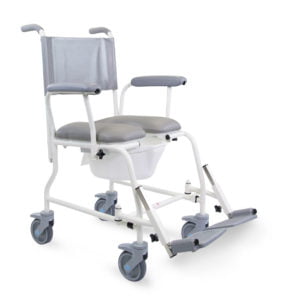
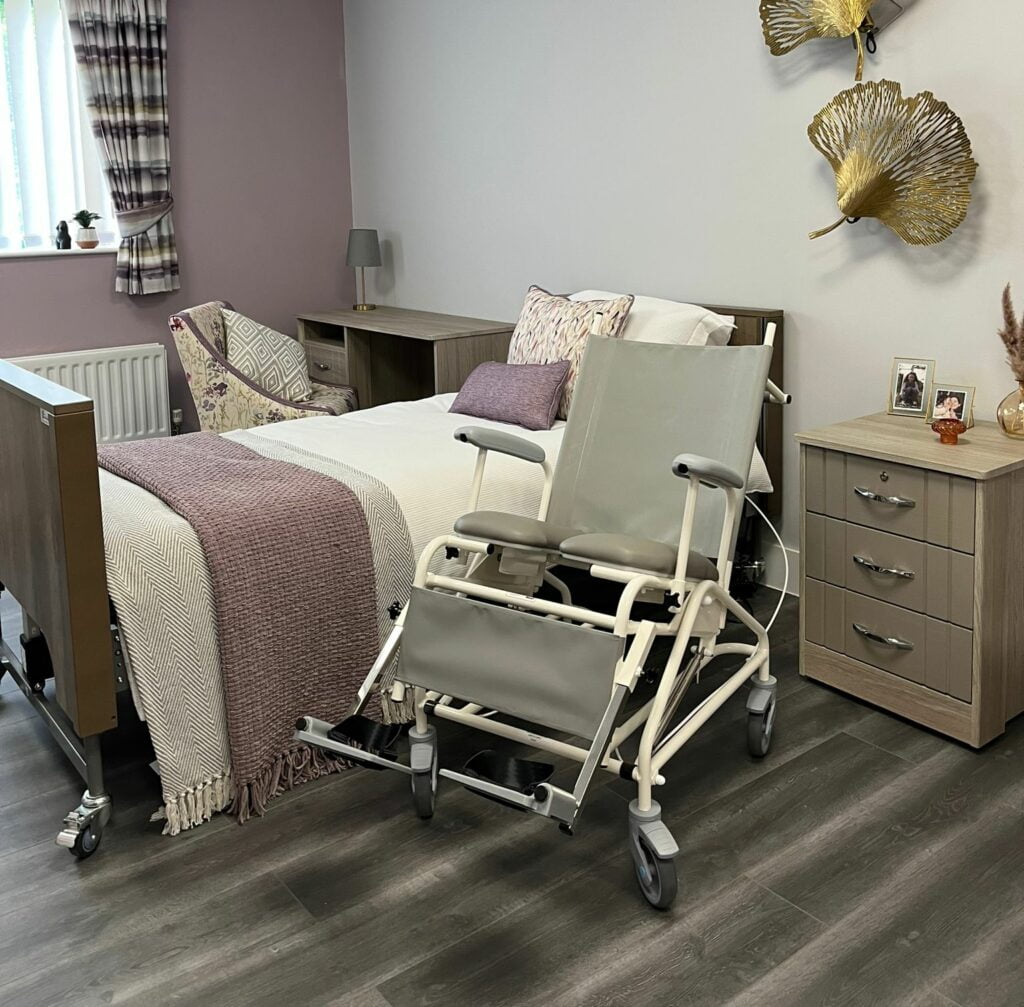
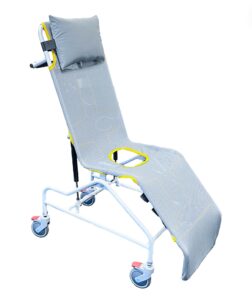 Both the
Both the 